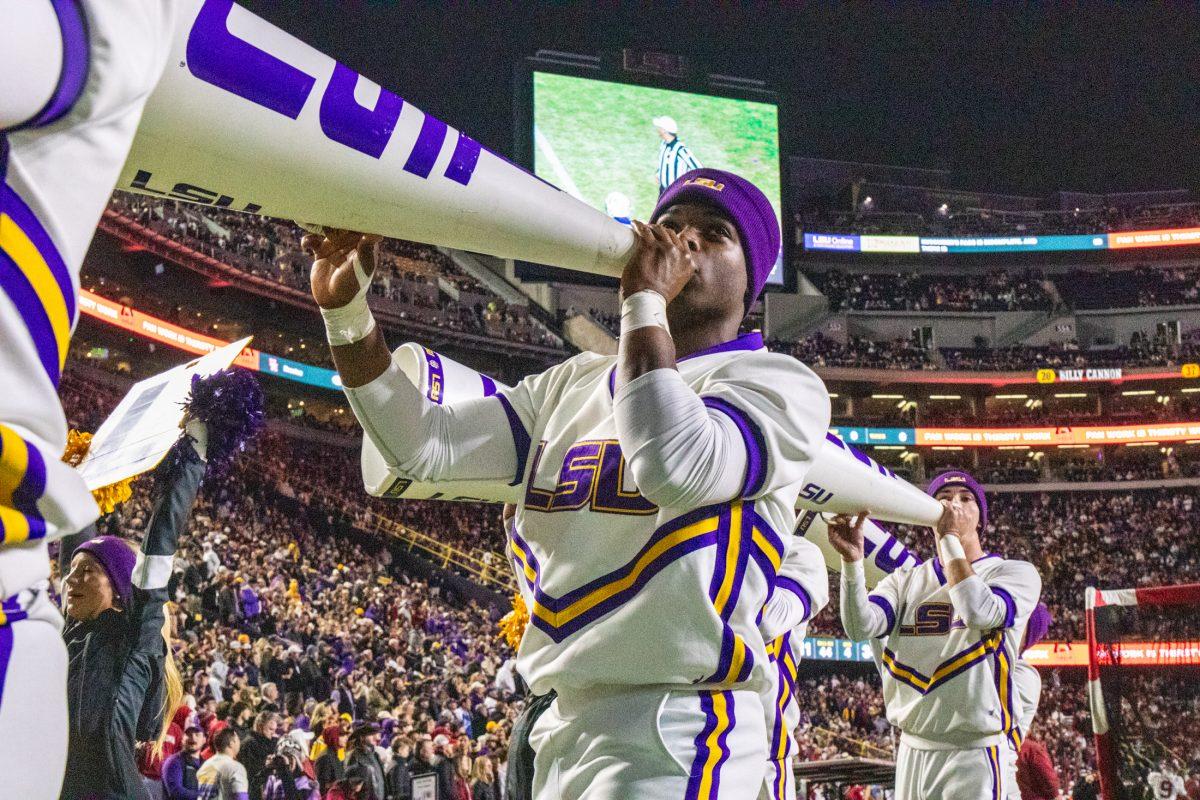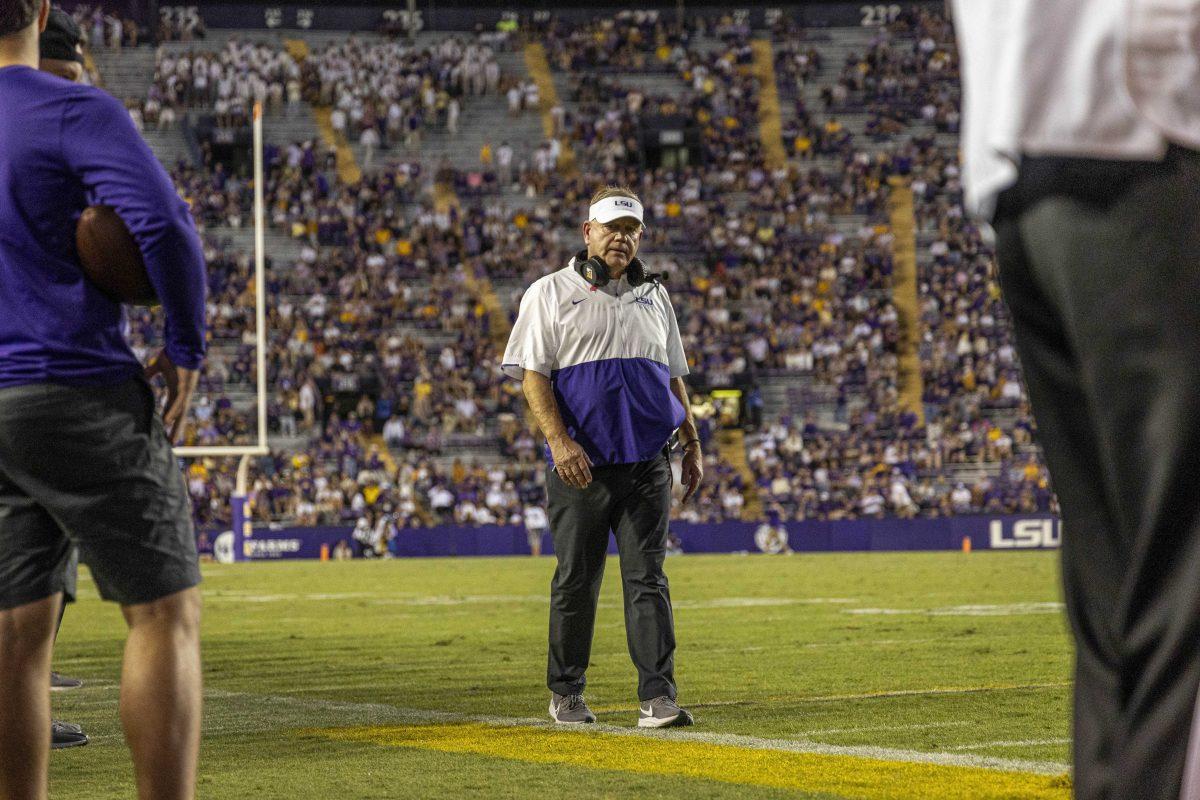In 2024, preceding the highly-anticipated LSU-Alabama football game, Gov. Jeff Landry made the polarizing decision to revive the tradition of having a tiger on LSU’s sidelines.
The announcement was filled with anger and confusion, with several commenters questioning why the governor was involved in LSU football.
This event, however, was not particularly unusual.
The governor’s office laid the very foundations of LSU football. Huey Long broadly prioritized new construction on LSU’s campus but ultimately directed much of his passion to building the Tigers into a prestigious team. He wrote the pre-game music the band plays today, built the stadium we still use and even gave state jobs to entice recruits.
Long saw the football program as a way for Louisiana to assert itself over its neighbors and, thus, a way he could assert himself over his political rivals. The team was his personal project. At times, he even called plays.
When he died, possession of the throne and all the jewels that came with it naturally went to his brother, Earl. Earl maintained a looser grip over the program, busier with other affairs, but he nonetheless still participated in recruiting. Every subsequent Longist state governor maintained an active role in football management.
Edwin Edwards was the first governor who tried to avoid interference, resisting calls pushing for the firing of coach Charles McClendon. However, he, too, would eventually give in to the tantalizing power of the office. This ultimately led to a unique battle between himself and former Gov. John McKeithen over a plan to build a $1 million dollar fund to boost the head coach’s salary, which McKeithen alleged was a scheme to replace coach Jerry Stovall.
When Edwards left office, bringing the dominant run of the Long machine to an end, the practice went into a lull. Republicans focused themselves on party-building, whilst Gov. Blanco contended with an entirely separate football battle to keep the Saints in New Orleans.
However, when Gov. Bobby Jindal took office, he once again stepped into LSU football affairs. His term would genuinely expose the perniciousness of the governor-football relationship.
In 2013, Taylor Porter, a Baton Rouge law firm, delivered allegations of sexual misconduct against LSU head coach Les Miles to three members of the LSU board, along with athletic director Joe Alleva.
Despite Alleva’s calls to fire Miles, the board issued a letter of reprimand and a few minor punishments and moved to quickly place as much of the documentation out of the public record as possible.
Gov. Jindal appointed every member of that board. Jindal maintains he did not know of the allegations, and there is no reason to suggest otherwise.
However, combined with his intense public support of Miles in 2015 when Alleva again sought to oust him and Miles’ attendance at one of Jindal’s presidential fundraisers, it’s just a really terrible look.
This is the core reason why this outdated practice must be done away with. The governor’s constant involvement in LSU football can create a strong appearance of impropriety in the instance of significant controversy, especially as the governor is generally permitted to appoint whoever they wish to the Board of Supervisors.
It’s not that governors shouldn’t be allowed to be friends with head coaches or be banned from attending games; I don’t even mind the idea of the governor going to the locker room to give the boys a pep talk before a big game.
However, the current power of the governor in shaping LSU oversight means that any relationship must face intense public scrutiny.
The influence of the governor over LSU appears to only be increasing. This means that any coach who builds a strong personal relationship with a governor would be significantly insulated from any punishment for misconduct and would be much safer from threats of ousting.
Furthermore, leveraging gubernatorial power and influence within the program for political purposes is only growing more egregious.
Coach Ed Orgeron made the unprecedented move of formally endorsing Gov. John Bel Edwards, a close personal friend, during his re-election campaign in 2019, a step up from Miles’ tacit support of Jindal. Gov. Landry has now used his position to draw culture war battle lines on football by unilaterally altering LSU game-day practices.
Football is meant to be an escape. It’s meant to be one of the few places left where anybody, regardless of any upbringing, state in life, or worldview, can come together to celebrate victory or grieve defeat.
When the governor seeks to unnecessarily insert themself and their agenda into football games, it builds walls where the love of the game is meant to tear them down.







